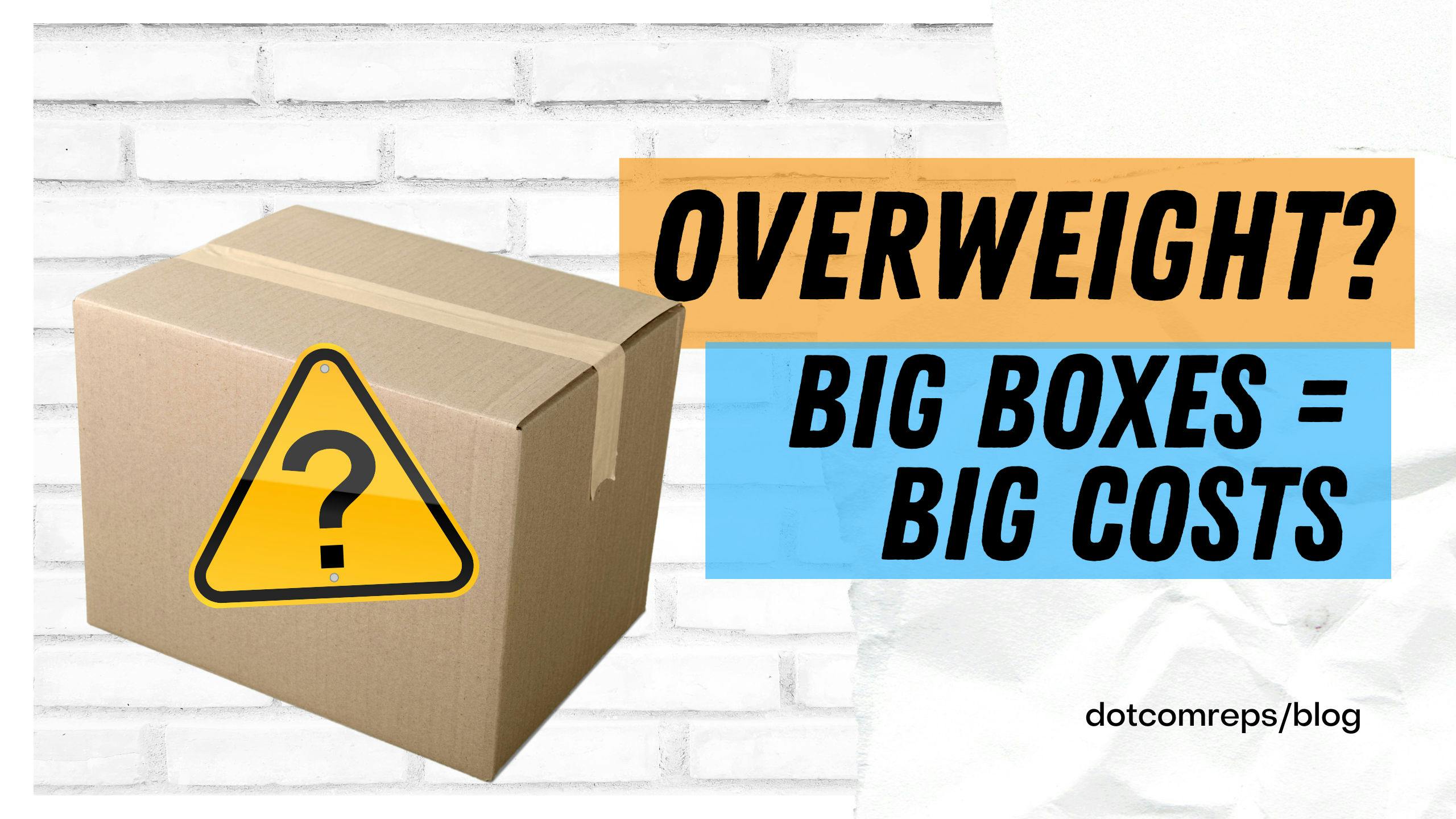Challenges of Overweight Products in Large Packaging on Amazon Vendor Central and FBA
Large and Heavy Products Struggling to be Profitable on Amazon as a Result of Freight Costs
Due to the recent pandemic, the days of brick-mortar purchases have gone, as the global business atmosphere has witnessed a significant transformation post-Covid-19 eruption worldwide. The situation has been made ripe for retailers to sell their products on Amazon because, in such difficult times, most customers have already turned towards e-Commerce websites with a newer re-imposition of faith to fulfill their demands. And why not? If you can get things delivered to your doorstep without having to go anywhere and be in the safety of your home during the pandemic, anyone would prefer to shop on Amazon.
Regarding the products listed for sale on Amazon, there are plenty of items you can explore and find. From small products like food items, clothing, etc., that were already in trend on e-commerce sites, to large and heavy products nowadays, including various machinery, furniture sets, etc. You can buy them all from different companies of your choice on Amazon, which facilitates you to explore having brought all such products from the comfort of your home. Consider leveraging Amazon brand management services to enhance your visibility and reputation on the platform, ensuring your products stand out amidst the competition.
The least weighing package to be delivered by Amazon might be a pound or less, while it is being seen that the upper limit of a package to be delivered has constantly been increasing due to the high demand for products online.
The Increasing Interest of Consumers in Large and Heavy Products on Amazon
As mentioned above, online buying means you can only buy products that fit into neatly packaged parcel boxes. Consumers are also purchasing this trend in online buying wherein the large and heavy products have nudged businesses to consider their freight and shipping requirements and costs accordingly. But before we move on to why the companies focus on freight costs for large and heavy products, we will explore why customers are increasing interest in purchasing such products on Amazon.
First, due to Covid-19, people are at home most of the time, and some are even working from home, so the orders of a home office and living room furniture and different types of mattresses and beds have increased. Also, trust in Amazon has been enhanced because of fewer shipping days and the safe and appropriate handling of products by Amazon delivery partners across the country and now globally.
Amazon has an intricate and dedicated network of sortation facilities, delivery stations, fulfillment centers, return centers, Amazon Prime hubs, etc., which ensures that large, bulky, and heavy products are delivered without any hassle whatsoever. This network is impressive because it has instilled consumers' faith in Amazon. But apart from this, Amazon also has a network of last-mile service providers like USPS, UPS, and regional-based couriers and carriers. While this is good because customers get the delivery of goods as promised. But this tends to drain the profitability of large and heavy products on Amazon.
Why Do Businesses Focus on Freight Costs for Large and Heavy Products?
Cheap and safe deliveries and quick returns are two things that Amazon has made possible for large and heavy products. Businesses and retailers of such products also offer free shipping or cut down their shipping costs for such products on Amazon. Furthermore, customers' satisfaction and requirements can be fulfilled without obstacles. If shipping costs are not maintained at a minimal level or Amazon does not offer free shipping, it is effortless for customers to look for other e-Commerce options. High shipping costs might lead to a loss of business sales or the phenomenon of abandoned online carts on the Amazon website. It is precisely why companies focus on freight costs and most often try to manage these effectively to provide consumers with free shipping or low shipping costs.
However, freight costs have further increased with the Omicron variant and Covid-19 still looming significantly over different parts of the world. Major ports are suffering a slowdown due to congestion. The Supply Chain is indeed getting affected negatively globally—thus, it impacts to air and shipping freight costs like never before. Since freight costs are increasing and there is a shortage of storage space, companies are switching to air freight. As a consequence, the air freight charges are also high.
Freight Costs Directly Impact the Profitability of Large and Heavy Products
With the freight rates seeing an upward trend that might continue for a while, businesses of large and heavy products need to consider this seriously. It is because freight costs impact such products' profitability directly. If the companies cannot factor in freight costs in the shipping costs of the products or the prices of products, they will have to bear the losses in their profit margin by selling on Amazon.
Therefore, it is essential to devise a well-thought-out strategy to decide on the shipping charges for large and heavy products on Amazon with consultation with your team. The businesses can offer multiple shipping options to the customers; they can also drop off at specific access points like the retail store's physical establishment; they can use their physical stores as fulfillment centers. These can be ways to tackle the increasing freight costs and reduce shipping costs.
Possible Way Out
As a retailer of large and heavy products selling on Amazon, the aim should be to provide the products at the best value depending on factors like the customer's habits, supply and demand, etc. Intelligently tweaking logistics is the only way to keep up with the increasing competition of such products on Amazon while earning a good profit from such deals. Refrain from letting freight costs hamper the profitability of large and heavy products on Amazon, as your business might lose relevance in retail and e-commerce. Consider leveraging Amazon consulting services to optimize your logistics strategies and stay competitive in the marketplace.
